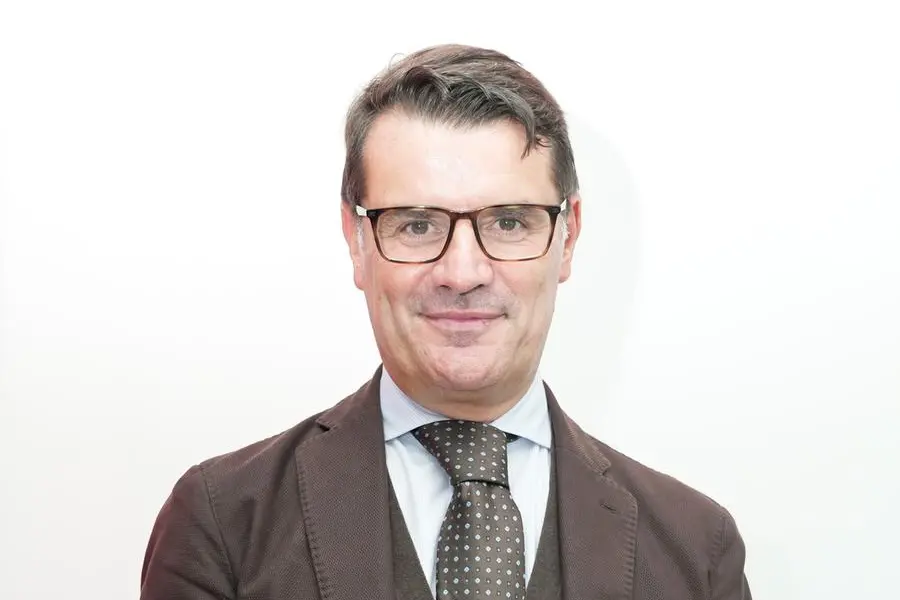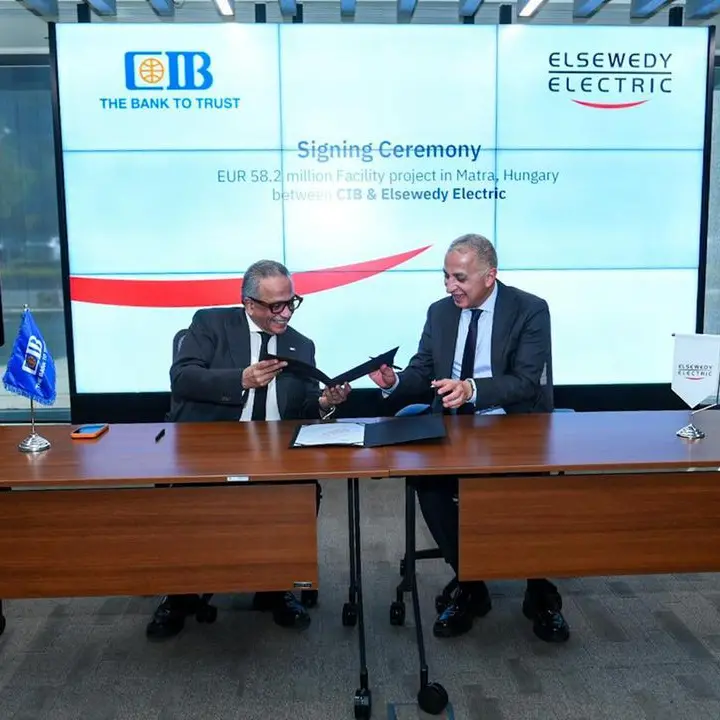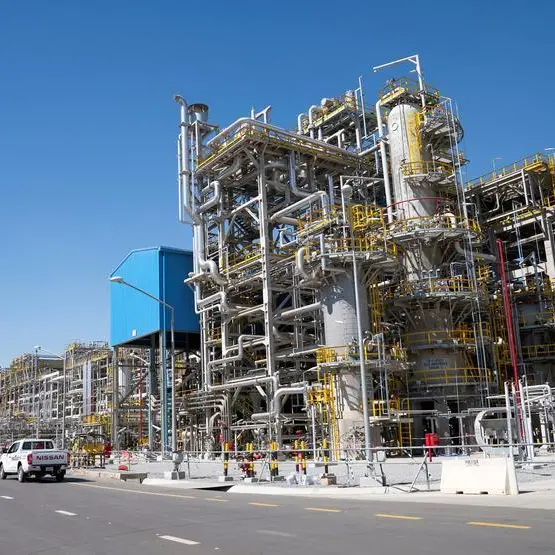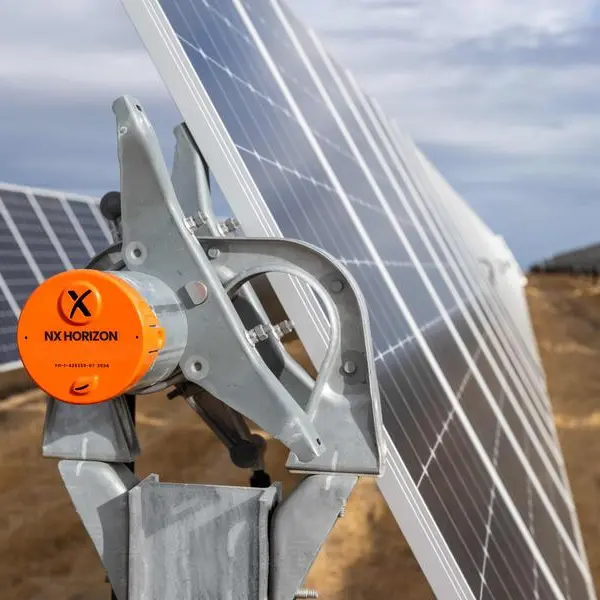PHOTO
Decarbonisation is a key driver of substantial investments in transmission and distribution networks, interconnections, and mobility infrastructure, creating a significant demand for Hitachi Energy's innovative technologies and solutions, according to Bruno Melles, Executive Vice President and Managing Director of the Transformers Business Unit.
Decarbonisation, he told Zawya Projects, is being addressed through various initiatives worldwide, with several clear trends emerging.
"First, many countries are transitioning away from fossil fuel-based power generation. Second, there is a significant focus on mobility and how it transforms travel and commuting. Third, there is a strong push for interconnections between countries and regions to enhance network resilience and capitalise on existing renewable energy installations."
Melles cited the example of the HVDC interconnection project between Saudi Arabia and Egypt, which is being built by a Hitachi Energy-led consortium. The project will enable the exchange of up to 3,000 megawatts (MW) of electricity at 500 kV along 1,350 km using overhead power lines and a subsea cable across the Red Sea.
He also highlighted electrification's role in shaping countries' total energy consumption, noting that many countries have targeted up to 80 per cent of their energy consumption from electricity by 2050.
In Saudi Arabia, for example, the company is playing a pivotal role in supporting these electrification goals through its involvement in strategic projects, including NEOM, utilising its EconiQ portfolio of SF6-free high-voltage products to promote sustainable energy solutions.
The Hitachi Energy executive said the company is actively working with stakeholders across various industries to electrify their processes.
In the oil and gas industry, the company is supporting decarbonisation efforts through projects like the sub-sea power transmission network for ADNOC, which will power the UAE oil and gas giant's offshore operations with cleaner electricity from the onshore power grid. In terms of power generation, this includes the introduction of advanced technologies such as energy storage solutions and working closely with power generation companies to support hydrogen and ammonia as integral components in the entire value chain.
Melles said the company strives to be a key partner in the oil and gas supply and value chain, addressing various stages from production to transmission and refining to support decarbonisation efforts.
"By focusing on electrification across these processes, we are driving efforts to decarbonise the industry comprehensively," he said.
The company is also actively contributing to the decarbonisation of the steel industry, especially in Saudi Arabia, supporting steel manufacturers as they transition from traditional blast furnace technology to more sustainable electric arc furnaces.
"For them, it is an opportunity to recover hydrogen, while for us, it is an opportunity to electrify the manufacturing. I'm positive the next logical step will be the full circularity from scrap to utilisation to production," he said.
Excerpts from the interview:
What innovative technologies is Hitachi Energy promoting to help industries reduce their carbon footprints?
Innovation has always been a cornerstone of Hitachi Energy. Let me highlight a few key examples: First, the HVDC interconnection, particularly the HVDC Light technology, is a groundbreaking solution we brought to the market. This innovation facilitates interconnections with a significantly reduced environmental footprint compared to traditional methods.
Another major breakthrough is our EconiQ portfolio of high-voltage switchgear, which we recently showcased at CIGRE in Paris. These switchgear use alternative gases instead of SF6, minimising environmental impact while maintaining efficiency and reliability.
In transformers, we are making significant strides in using alternative oils to replace mineral oil, collaborating with suppliers to promote circularity with green steel and copper, and striving to achieve the lowest possible CO2 emissions.
Last but not least, we are decarbonising all our operations; across our factories, we have already reduced carbon emissions and are on track to achieve an 80 per cent reduction in absolute emissions by 2030. These efforts underscore our dedication to sustainability.
Regarding your 'Path to Net Zero' strategy, what initiatives are being undertaken by the Transformers business unit to decarbonise the supply chain?
When discussing the decarbonisation of the transformer supply chain, the biggest focus is going to be on commodities. Our efforts are directed toward collaborating with steel and copper suppliers to help them decarbonise their value chains. We are also working with steel and copper manufacturers to promote circularity in steel and copper production. In the high-voltage sector, decarbonisation efforts are centred on replacing traditionally used SF6 insulating gas with greener, more sustainable alternatives.
How is Hitachi Energy developing the talent and skills needed to support its growth and sustainability goals?
Electrification is driving the transformation of the world, and this transformation will inevitably draw talent from the same sources, so everybody is going to fight for the same talent. We seek people who view decarbonisation as a purpose, a mission, and a key driver for creating a sustainable future. Believe it or not, Hitachi Energy has become an even stronger employer by attracting people who share our vision and embrace the same challenges we face, people who have a strong drive to harness artificial intelligence in revolutionising the design, simulation, and execution of portfolios and plans; people who see materials as a transformative driver, pushing beyond traditional product design to incorporate materials and solutions where decarbonisation is in the DNA. This is why alternative gases or alternative ways to produce steel and copper are going to be very, very relevant.
But I want to underline that Hitachi Energy is a manufacturing business. We greatly value the contributions of the workers in our factories, who share our passion for decarbonising operations and transforming our factories into green, sustainable, and attractive workplaces.
How do you see the electrical industry evolving in terms of balancing sustainability with cost-efficiency? Are customers comfortable paying a 'green premium' for green products?
I recall when electric cars first entered the market, people took for granted that owning one came with a premium price. However, today, the electric vehicle market is shifting toward providing options with operational costs comparable to traditional Internal Combustion engine cars. I believe the electrical industry – whether it's transformers or high-voltage switchgear – is on a similar path of transformation.
As we progress, customers will increasingly take for granted that our products are manufactured in fully decarbonised factories. Factories with CO2 emissions will no longer be the norm—they will become the exception.
The same shift applies to product portfolios. Customers will expect SF-6 free high-voltage switchgear as the norm. I believe more and more customers will appreciate the efforts towards developing a green portfolio without burdening them with higher operational costs.
As we approach 2025, what key trends or developments do you foresee shaping the industry?
Excluding geopolitical factors, what we are already witnessing in 2024—and will continue to see—is the increasing strain on the resilience of the supply chain, particularly in energy and electrification. A robust and solid planning process is more critical than ever to ensure that the industry can effectively support customers and partners in their decarbonisation and electrification efforts.
Such planning enables us at Hitachi Energy to build on our investments in factory capacity, R&D, and organisational enhancements—and prepare for even greater investments aligned with the needs of our customers and partners. Electrification is undeniably a one-way road, and to support this transition from a supply chain perspective, we need to have high transparency in the planning and preparation.
One of the key reasons Hitachi Energy is recognised globally as a reliable partner in electrification is our pioneering of the flexible sourcing concept, which has provided our customers and partners, including those in the region, with the assurance that they can access goods, services, products, and expertise from a wide range of locations.
What are your investment plans for 2025, especially in the region?
Between 2024 and 2027, we have committed to investing up to $8 billion. This significant investment is primarily focused on R&D and technological advancements, expanding our organisation by bringing in new talent and, most notably, enhancing capacity through the development of new factories.
We are making significant investments in the region—investing in people, advanced technology, and capacity building across various locations, a notable example being Egypt. Our engineering efforts in Saudi Arabia and across the Gulf underscore our strong belief in these markets' potential and our commitment to understanding and resolving their unique challenges.
(Reporting by Anoop Menon; Editing by SA Kader)
Subscribe to our Projects' PULSE newsletter that brings you trustworthy news, updates and insights on project activities, developments, and partnerships across sectors in the Middle East and Africa.





















